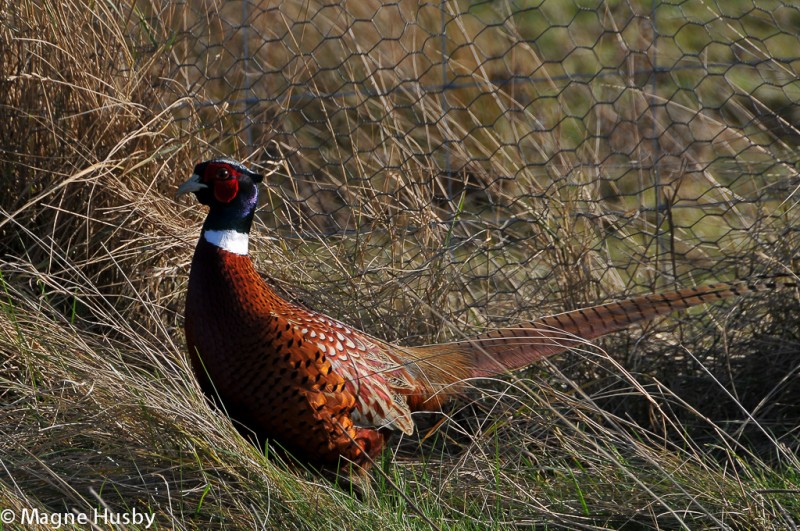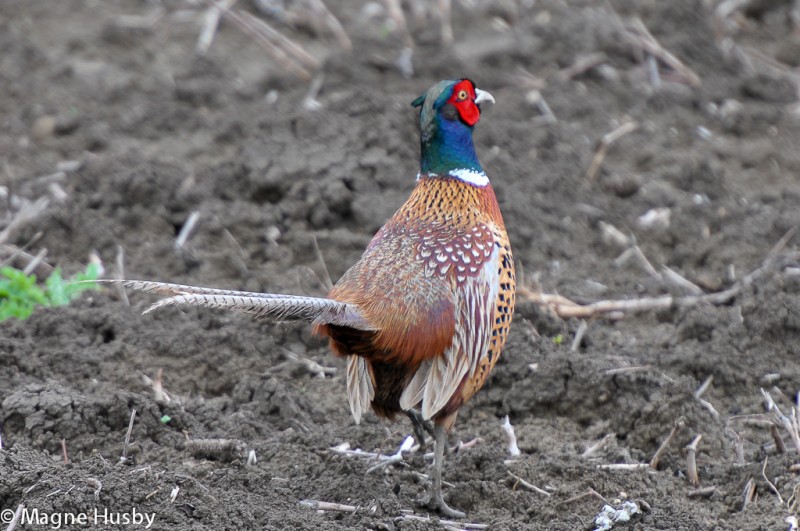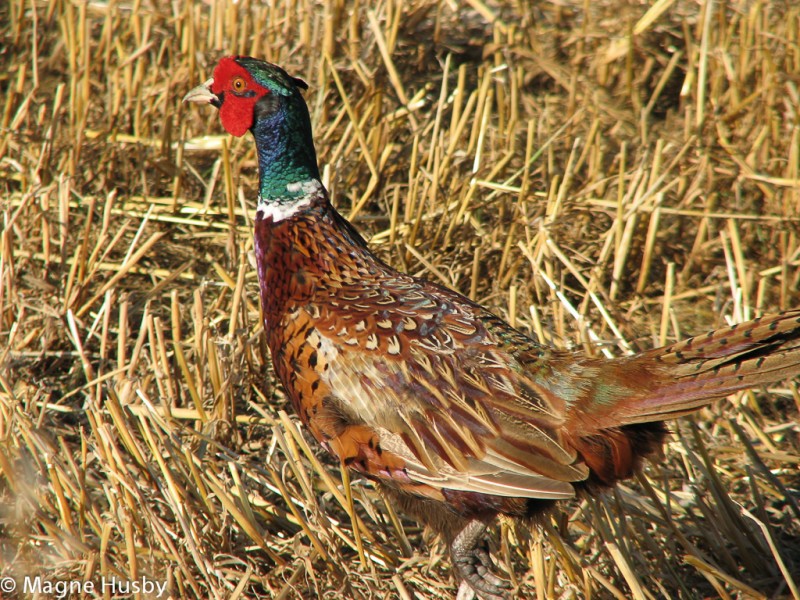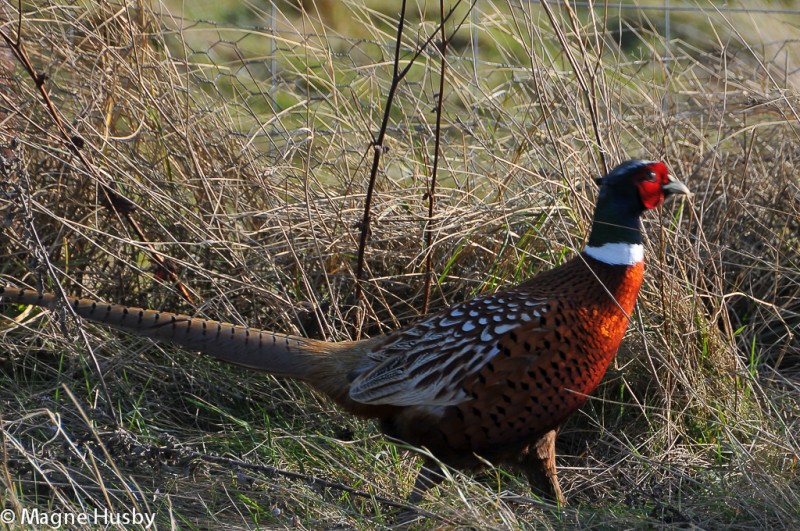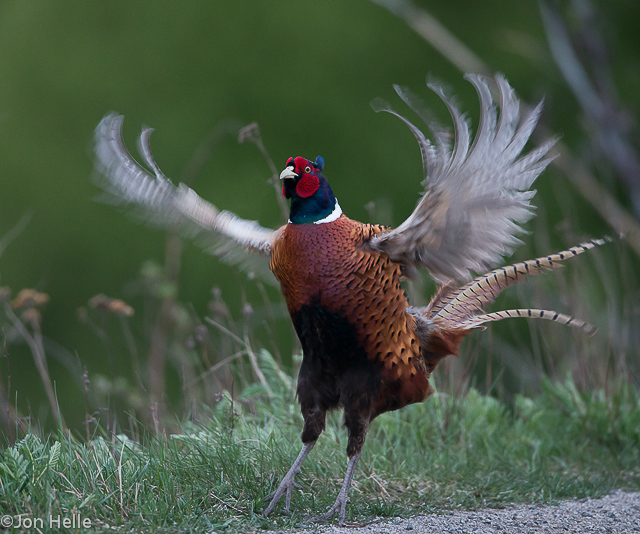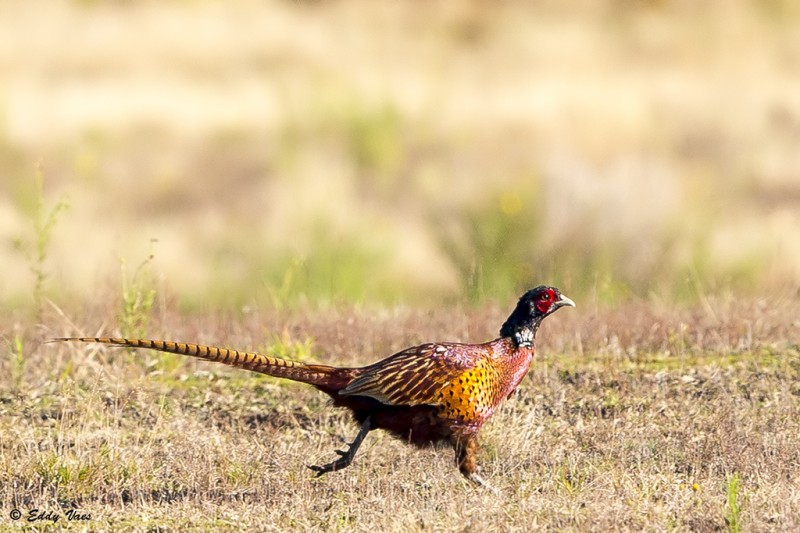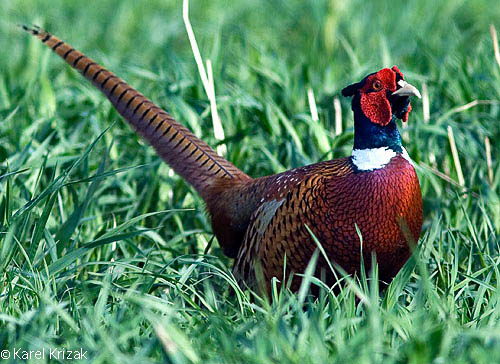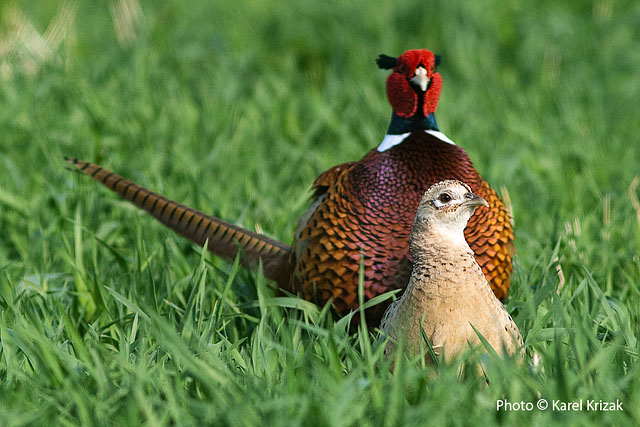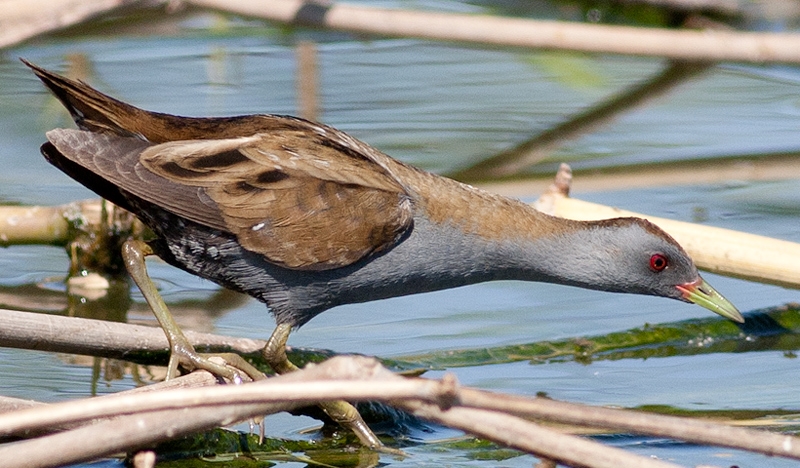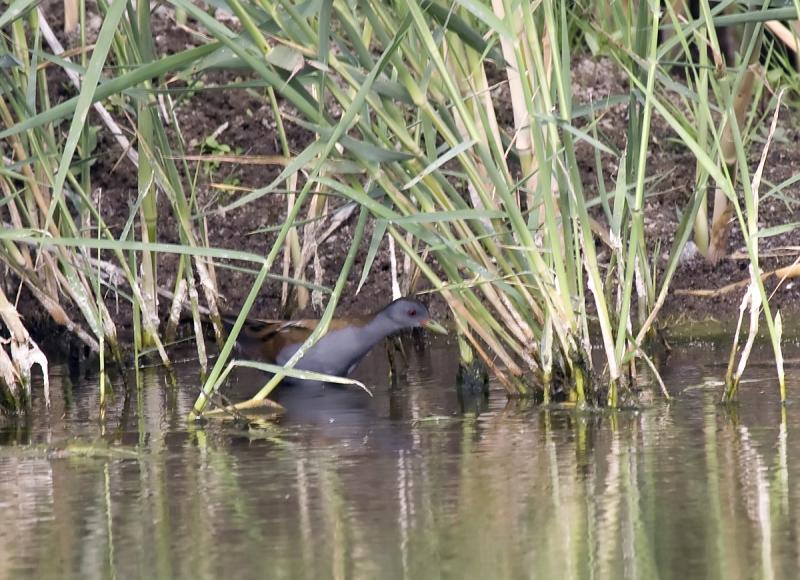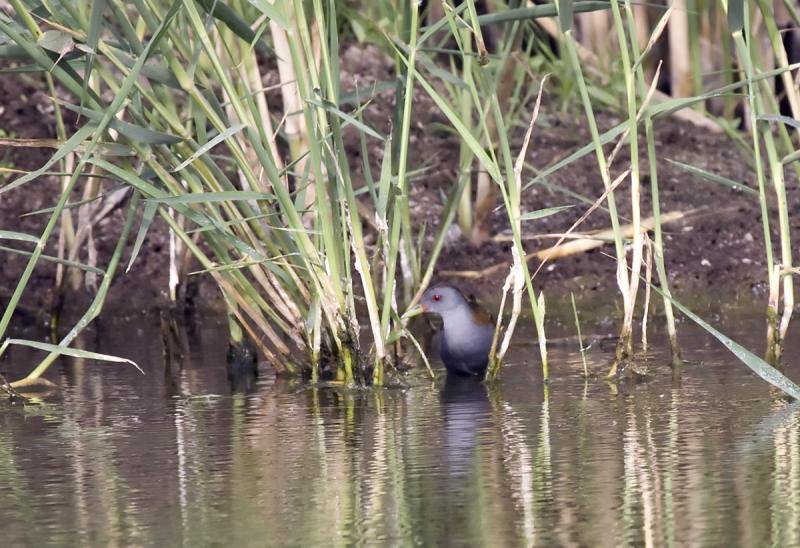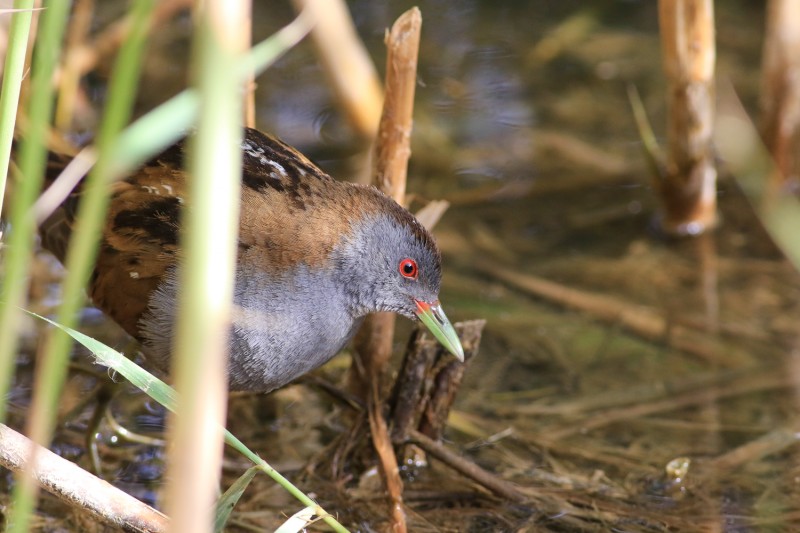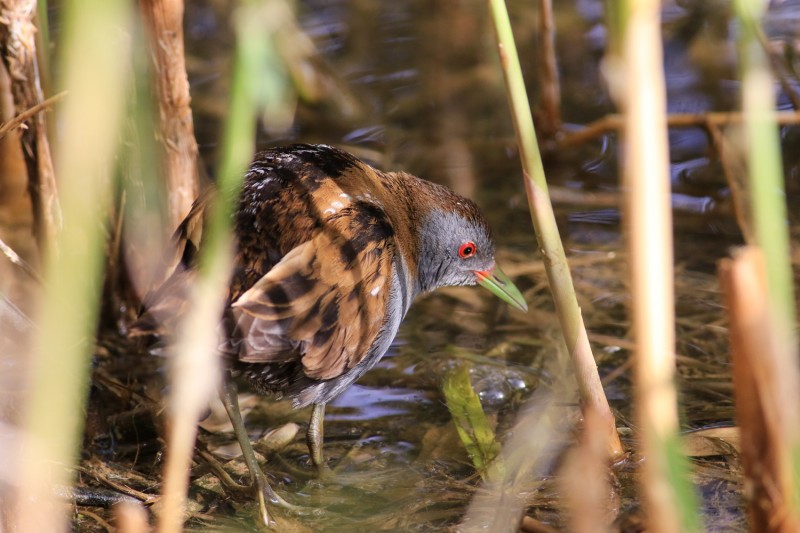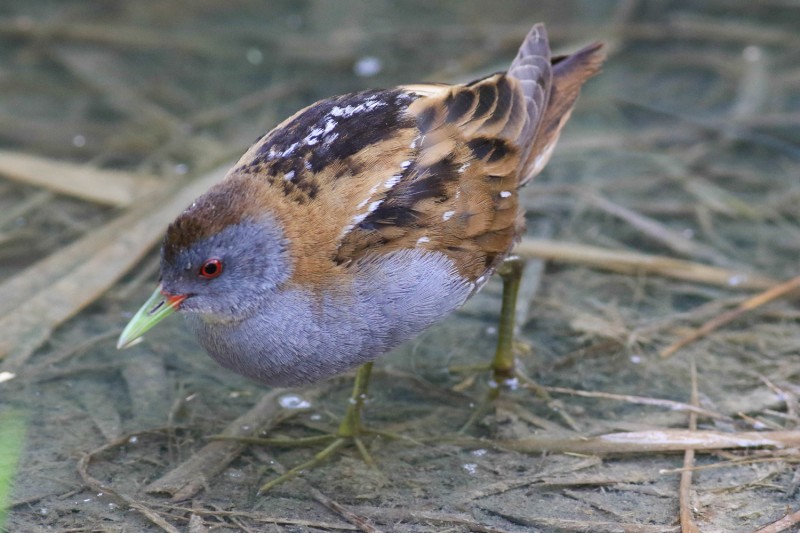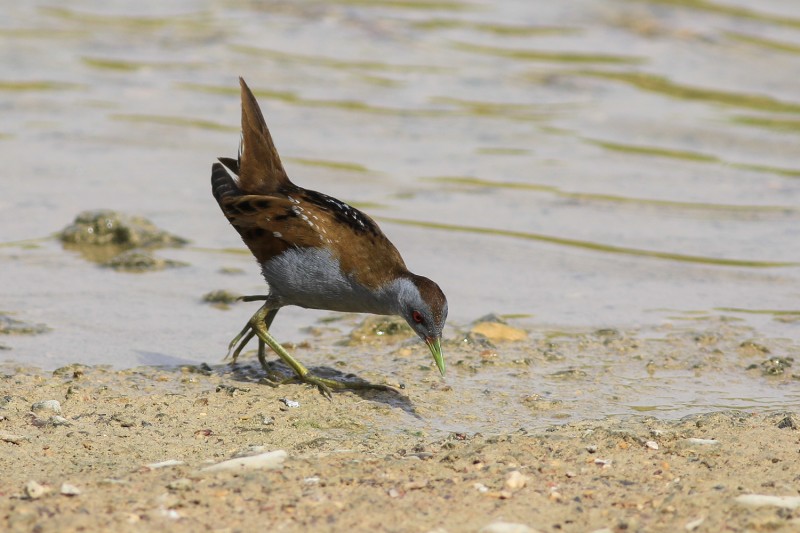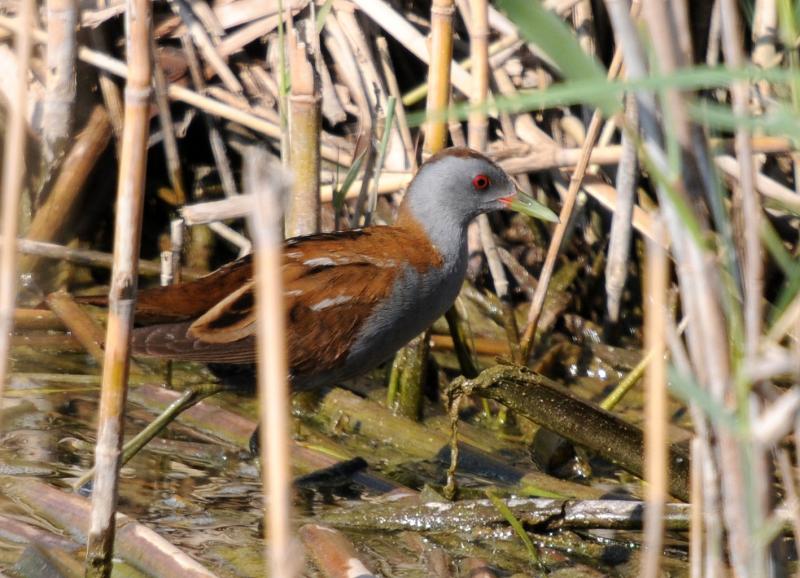Pheasant (Phasianus colchicus)
Little Crake (Zapornia parva)
Male unmistakable. A stunningly colourful bird with a dark, metallic green head with bright red bare sides. Female dark buff with dark spots. Can be mistaken for female Golden Pheasant, or Lady Amherst's Pheasant, but these have barred breast. Both sexes with straight, very long, tapering tails.
Sound:Diverse repertoire of harsh cackling sounds. Male call can be heard for more than a kilometer away; a very harsh, staccato and explosive "kaa" or "ka-kaa", with last syllable falling in pitch.
Song:
Distribution:
Wikipedia: map (se also Xeno-canto below)
Ecology:Birdlife ecology
Links:
Observation.org Latest observations
Image search Flickr NB! May give other species
CCDiffers from Baillon's Crake in long primary projection in all plumages. At least 5 tips of primaries visible behind tertials. Adult birds show red base of bill, but this is sometimes difficult to see and immature may lack this altogether. Male with lead grey underparts, female with grey face and buff underparts. Immature with barred and spotted underparts but less so than immature Baillon's. The crown is also more evenly dark together with dark ear coverts. The species appears slimmer than Baillon's Crake due to longer neck, tail and legs.
Sound:Rich repertoire of calls used freely in breeding season. Male song diagnostic. A loud series of short, nasal ascending "quek" repeated every one and a half seconds or so, before accelerating and descending at the same time to a more guttural voice. Female song with similar short "quek" but with less pure tone and in shorter series (sometimes just one call), immediately followed by a rolling trill.
Male song:
Distribution:
Wikipedia: map (se also Xeno-canto below)
Ecology:Birdlife ecology
Links:
Observation.org Latest observations
Image search Flickr NB! May give other species
CCCC-photo:Rudo Jureček, Licence,Link.
CC-Photo:Arie en Anneke Kolders, Licence,Link.
CC-Photo:Jorrit Vlot, Licence,Link.

 English
English Albanian
Albanian
 Armenian
Armenian
 Bulgarian
Bulgarian
 Catalan
Catalan
 Croatian
Croatian
 Czech
Czech
 Danish
Danish
 Dutch
Dutch
 Finnish
Finnish
 French
French
 Georgian
Georgian
 German
German
 Greek
Greek
 Hungarian
Hungarian
 Italian
Italian
 Latvian
Latvian
 Lithuanian
Lithuanian
 Macedonian
Macedonian
 Norwegian
Norwegian
 Polish
Polish
 Portuguese
Portuguese
 Romanian
Romanian
 Russian
Russian
 Sami : Lule sami
Sami : Lule sami
 Sami : North sami
Sami : North sami
 Sami : South sami
Sami : South sami
 Scientific names
Scientific names
 Serbian
Serbian
 Spanish
Spanish
 Swedish
Swedish
 Ukrainian
Ukrainian


